二万五 TAGS
Li Tianbing: Comrade!
Location: Long March Space, Beijing (formerly known as 25000 Cultural Transmission Center)
Duration: June 4 – 26, 2005
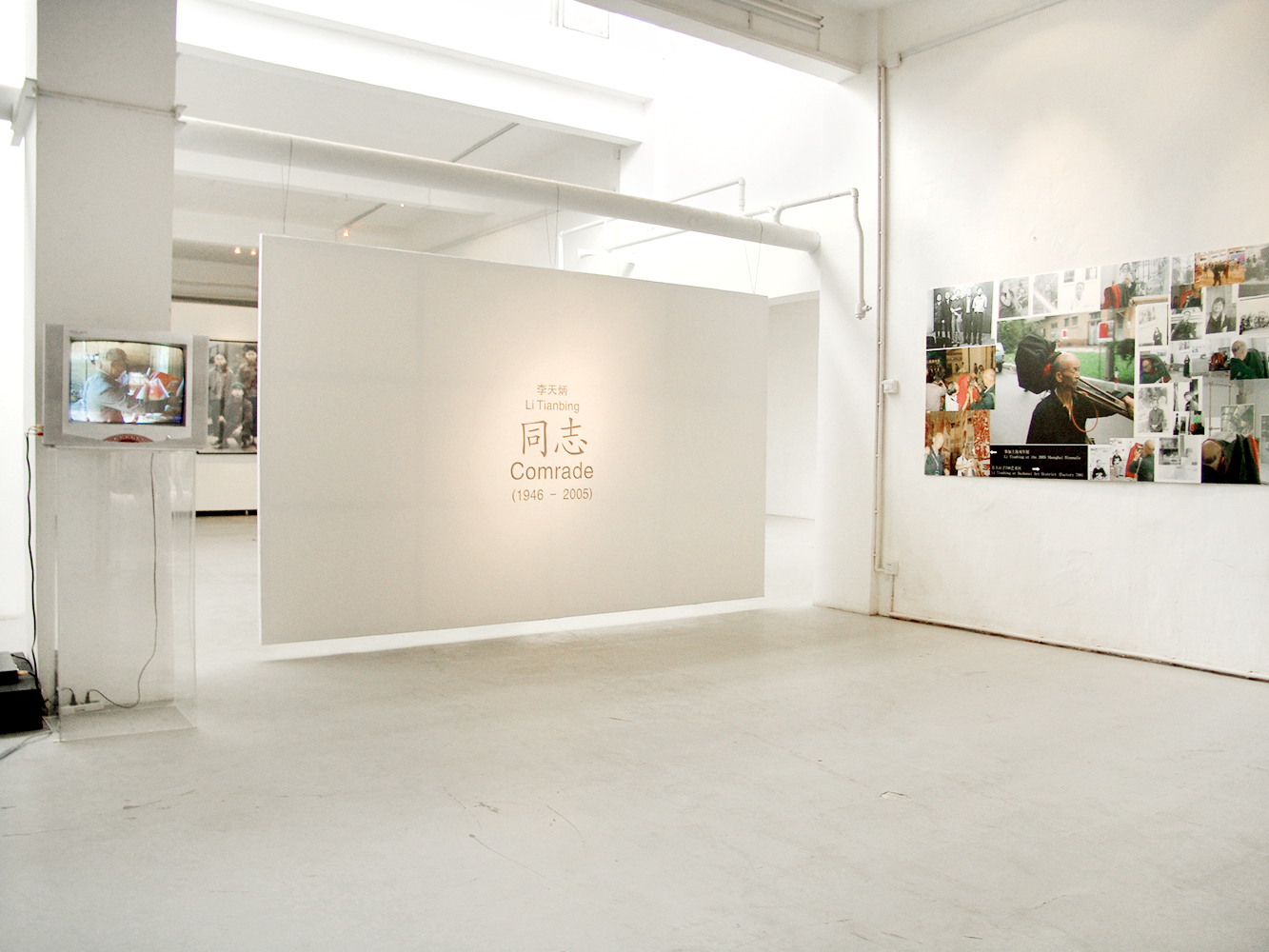
Guinness Book of World Records holder for the most photos taken with natural light, Fujian mountain photographer Li Tianbing will host his solo exhibition at the Long March Space. The exhibition is a selection of works from 1946 to 2005, of which there are series of “Male Comrade”, “Female Comrade”, “Comrade Companion”, “Family Comrade”, and “Collective Comrades”. Since holding a solo exhibition with the Long March at the Central Post Office Memorial Site in Ruijin, Li Tianbing has developed from a “Village Photograhper” into a “Contemporary Artist”, exhibiting in international museums, as well as the Shanghai Biennale, and this year’s Prague Biennale.
Born in 1933, Li Tianbing is a village cameraman from Makeng Village, Huaan County, Zhangzhou City, Fujian Province. Before the liberation, he acted as an assistant for an English cameraman who was taking photos for personal identity cards in the region. Ever since this experience he has developed a deep interest in photography.
In 1945, Li Tianbing stole a cow from his grandmother’s home, selling it in a nearby town. Using the money he received, he purchased an old English camera, thereby launching his career as a photographer. For over 60 years he has been carrying this camera over and across mountains, taking hundreds of thousands of images throughout the impoverished areas of southwestern Fujian Province. The works by Li Tianbing document the visual changes to life and spirit within these remote mountain communities over the past decades in Chinese history, and remain the only visual documentary of events from this period. Villagers use a simple song entitled “Maestro Tianbing” to celebrate him. To them, “Maestro Tianbing” is a legacy. Li Tianbing has become the most celebrated village cameraman in Chinese and international press.
Because the region is still without electricity, the development of photo negatives are completely dependent on Li Tianbing’s personal experience working with natural light. Flashing open and closed his barn door, Li Tianbing manually exposes the film. Using the incoming light from his chimney, he is able to enlarge the images, and in the mountain streams he washes the photos. His work is a legacy based on simplicity and extraordinary individual effort. Because of this accomplishment he has been added to the “Jinisi” Book of World Records (Shanghai) for “the longest period of using natural light to develop and enlarge photographs.” Li Tianbing uses the sensitivity towards nature innate within people from the agricultural era to deconstruct photography – a symbol of modern technology – providing us with an alternative framework in this modern era.
Since holding a solo exhibition with the Long March at the historical site of the Soviet Republic on the road of the Long March (2002), Li Tianbing has developed from a “Village Cameraman” into a “Contemporary Artist”, exhibiting in international museums, as well as the Shanghai Biennale, and this year’s Prague Biennale. With the support of the Long March, he spent half a year returning to the villages revisiting friends and relatives of whom he took pictures of for over 60 years, collecting a handful of photographs representative of his works since 1940, and remaking these “ready-made” displayable and collectable “contemporary art works.” For this solo exhibition, the Long March has carefully selected works from 1946 to 2005 to compose a series of “Male Comrade”, “Female Comrade”, “Comrade Companion”, “Family Comrade”, and “Collective Comrade”. Through the unfolding of a new reading and understanding of living and historical recording, as well as the relationship between individual and collective, the Long March has completed the transformation of Li Tianbing – the individual and the author – from a “village cameraman” to a “ready-made” “contemporary artist.”
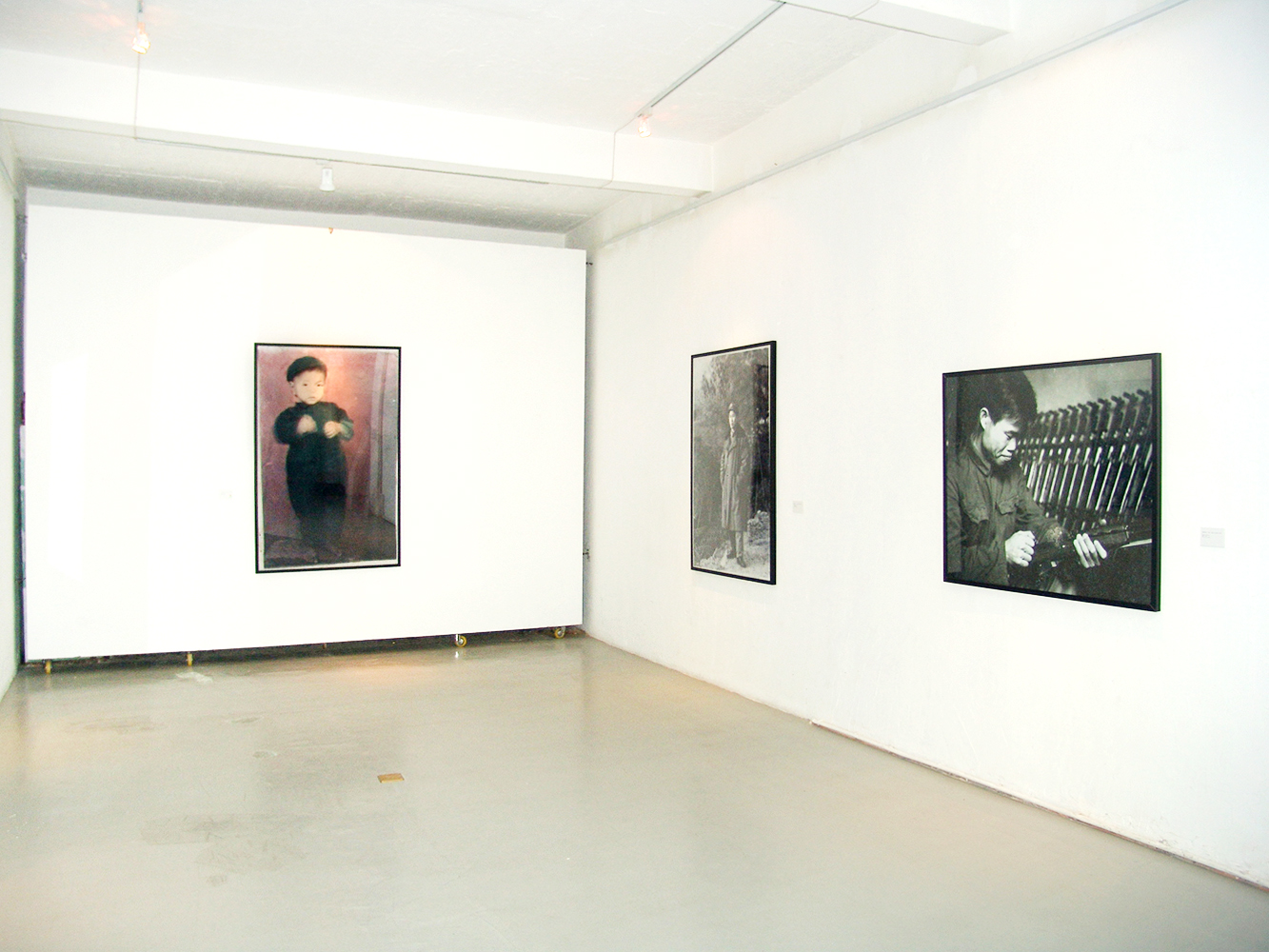
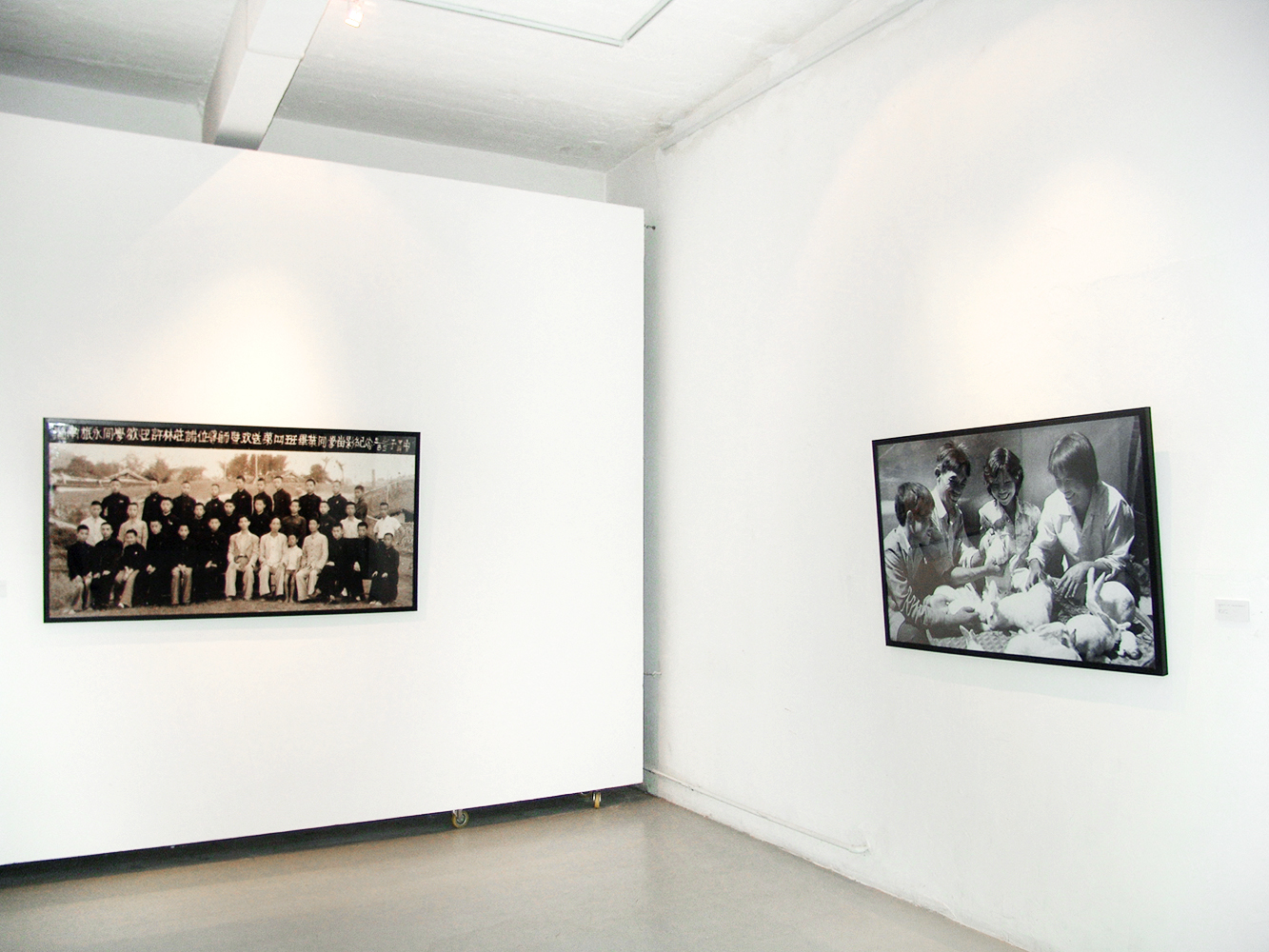
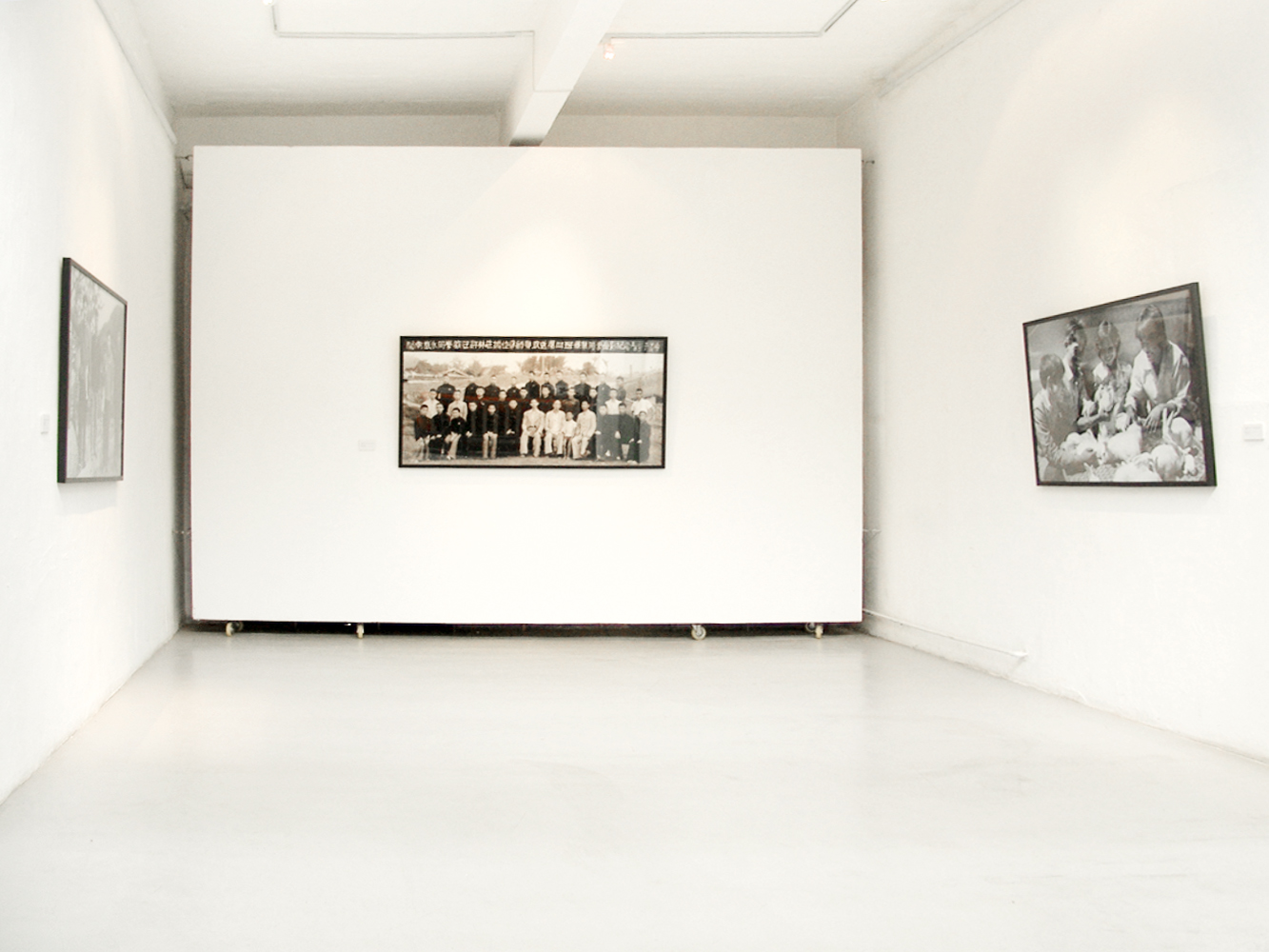
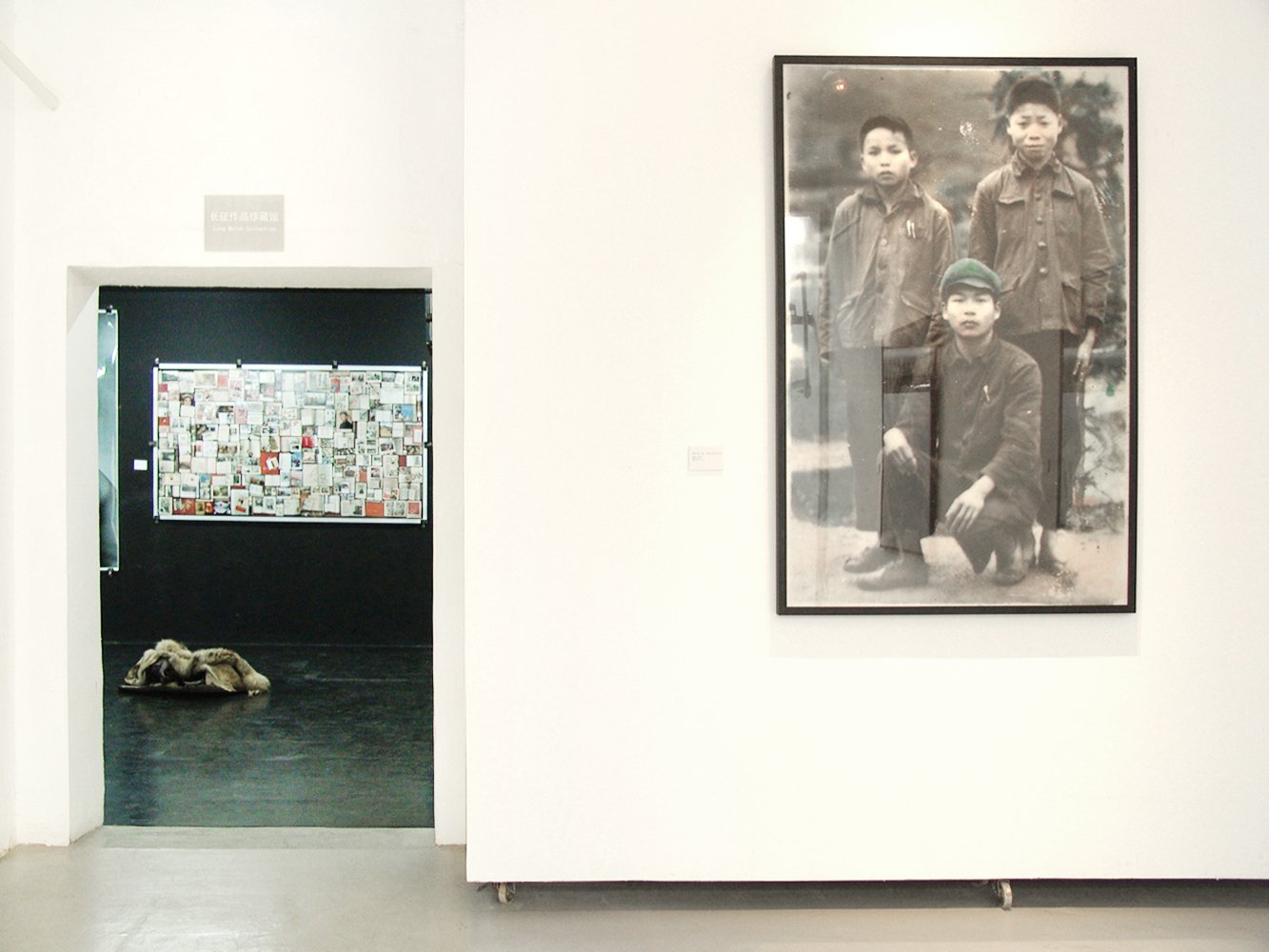
Guinness Book of World Records holder for the most photos taken with natural light, Fujian mountain photographer Li Tianbing will host his solo exhibition at the Long March Space. The exhibition is a selection of works from 1946 to 2005, of which there are series of “Male Comrade”, “Female Comrade”, “Comrade Companion”, “Family Comrade”, and “Collective Comrades”. Since holding a solo exhibition with the Long March at the Central Post Office Memorial Site in Ruijin, Li Tianbing has developed from a “Village Photograhper” into a “Contemporary Artist”, exhibiting in international museums, as well as the Shanghai Biennale, and this year’s Prague Biennale.
Born in 1933, Li Tianbing is a village cameraman from Makeng Village, Huaan County, Zhangzhou City, Fujian Province. Before the liberation, he acted as an assistant for an English cameraman who was taking photos for personal identity cards in the region. Ever since this experience he has developed a deep interest in photography.
In 1945, Li Tianbing stole a cow from his grandmother’s home, selling it in a nearby town. Using the money he received, he purchased an old English camera, thereby launching his career as a photographer. For over 60 years he has been carrying this camera over and across mountains, taking hundreds of thousands of images throughout the impoverished areas of southwestern Fujian Province. The works by Li Tianbing document the visual changes to life and spirit within these remote mountain communities over the past decades in Chinese history, and remain the only visual documentary of events from this period. Villagers use a simple song entitled “Maestro Tianbing” to celebrate him. To them, “Maestro Tianbing” is a legacy. Li Tianbing has become the most celebrated village cameraman in Chinese and international press.
Because the region is still without electricity, the development of photo negatives are completely dependent on Li Tianbing’s personal experience working with natural light. Flashing open and closed his barn door, Li Tianbing manually exposes the film. Using the incoming light from his chimney, he is able to enlarge the images, and in the mountain streams he washes the photos. His work is a legacy based on simplicity and extraordinary individual effort. Because of this accomplishment he has been added to the “Jinisi” Book of World Records (Shanghai) for “the longest period of using natural light to develop and enlarge photographs.” Li Tianbing uses the sensitivity towards nature innate within people from the agricultural era to deconstruct photography – a symbol of modern technology – providing us with an alternative framework in this modern era.
Since holding a solo exhibition with the Long March at the historical site of the Soviet Republic on the road of the Long March (2002), Li Tianbing has developed from a “Village Cameraman” into a “Contemporary Artist”, exhibiting in international museums, as well as the Shanghai Biennale, and this year’s Prague Biennale. With the support of the Long March, he spent half a year returning to the villages revisiting friends and relatives of whom he took pictures of for over 60 years, collecting a handful of photographs representative of his works since 1940, and remaking these “ready-made” displayable and collectable “contemporary art works.” For this solo exhibition, the Long March has carefully selected works from 1946 to 2005 to compose a series of “Male Comrade”, “Female Comrade”, “Comrade Companion”, “Family Comrade”, and “Collective Comrade”. Through the unfolding of a new reading and understanding of living and historical recording, as well as the relationship between individual and collective, the Long March has completed the transformation of Li Tianbing – the individual and the author – from a “village cameraman” to a “ready-made” “contemporary artist.”





